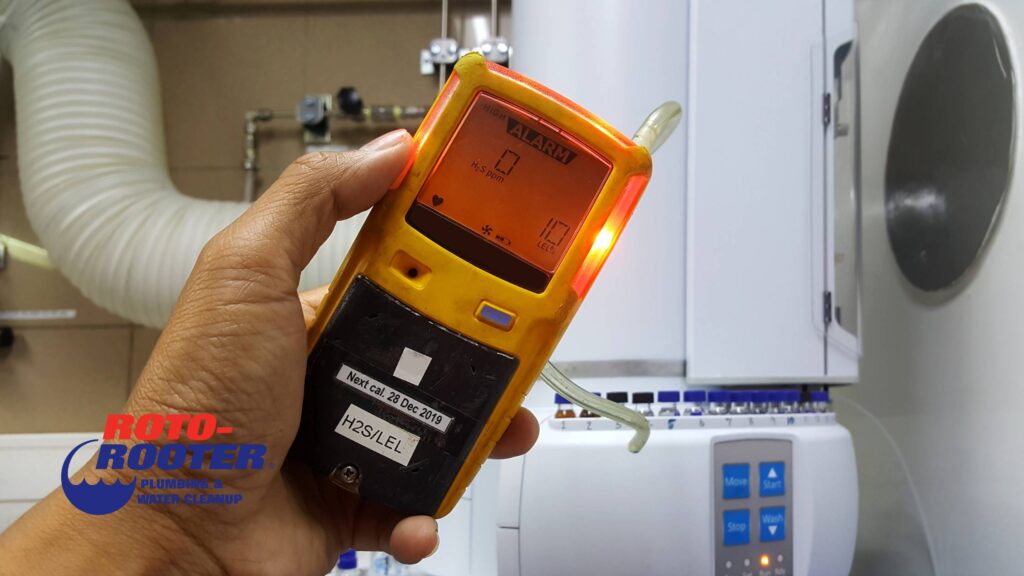Even the best-installed gas line or pipe can break, crack or leak. There are many typical causes, such as shifting soil, underground corrosion or even a tree root developing and destroying the line, and homeowners sometimes have no notice until it’s too late.
Before It’s Too Late, Detecting A Gas Leak
A strong sulfur odor, which many people describe as “rotten eggs,” is one of the most prevalent indications of a gas leak. Get in touch with a plumbing professional right away if you smell sulfur or rotting eggs. Our experts can analyze your gas line and recommend the best course of action.
The following are some more common indicators of a gas leak:
- Near the line, there is a hissing or whistling sound.
- Near the line, there is a cloud of dust or white mist.
- Water with bubbles
- Houseplants that have died
- Damage to your gas line, pipe or the ground around it that is visible
Consistently higher-than-normal gas expenses are another red flag. When a line leaks, the gas flees the pipe rather than reaching your home or appliances. This necessitates delivering extra gas to your residence in order to keep the heating and appliances operating, which immediately spikes your cost.
Other residents may experience physical problems as a result of the gas leak, especially if it has been ongoing for some time. These symptoms are quite serious if they are linked to a gas leak and should not be disregarded. Look for signals in yourself, family members or other visitors to your home—even if only one person exhibits symptoms of a leak, seek professional assistance right away. The following are possible signs and symptoms:
- Breathing problems or chest pain
- Dizziness
- Fatigue or sleepiness on a regular basis
- Headaches
- Light-headedness
- Irritation of the eyes or throat
- Nausea
- Nosebleeds
- The ringing in the ears
- Appetite decreases
- Depression or mood swings
- Other flu-like signs and symptoms
Gas leaks can cause symptoms in pets as well. Look for any of the following: noticeable changes in behavior, confusion, red or watery eyes, vomiting, lack of appetite or marked fatigue, as well as any other symptoms.
What To Do If You Suspect A Gas Leak
DON’T WAIT IF YOU OR SOMEONE IN YOUR FAMILY IS EXPERIENCING ANY OF THESE SYMPTOMS. To keep yourself, your loved ones and your house secure, take these precautions right away.
#1. Get out of your house as soon as possible.
#2. Put down your electrical devices.
#3. Keep your doors ajar.
#4. Contact your gas company—as well as 911.
#5: Get in touch with Roto-Rooter.
Contact Roto-Rooter after any emergency leaks have been addressed. Our skilled technicians and installation teams can analyze your current gas line and pipes and identify the safest, most efficient next steps for resuming gas service. We’ll make sure your home is warm and your appliances are ready to use as soon as possible, whether it’s a new installation or minor maintenance, all while reducing future danger.



